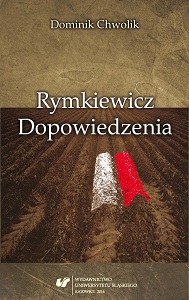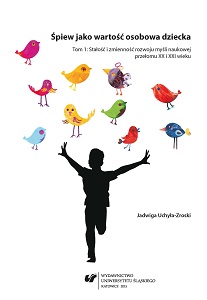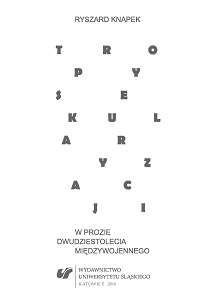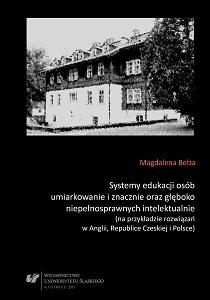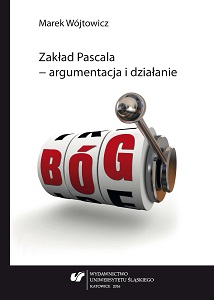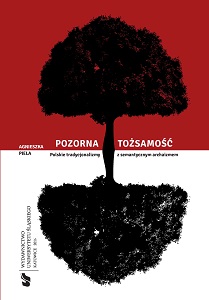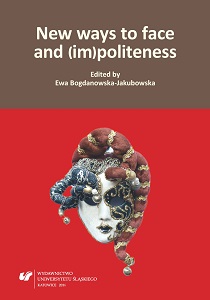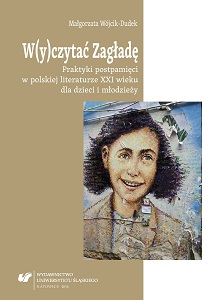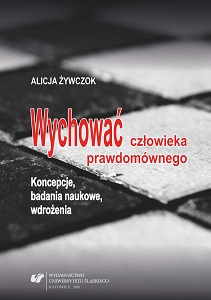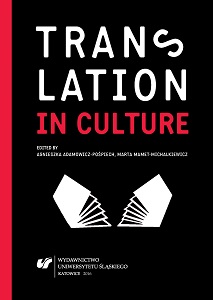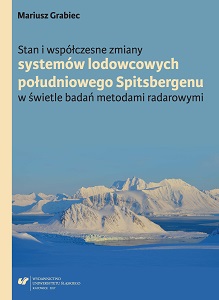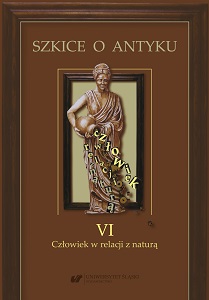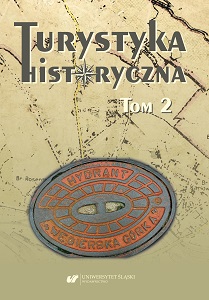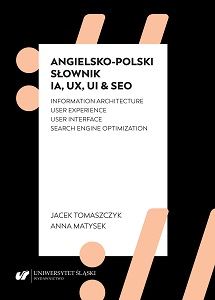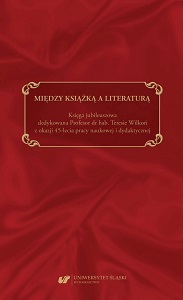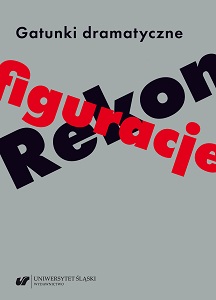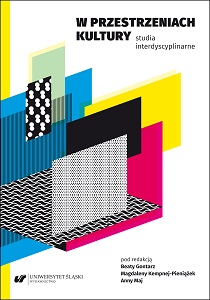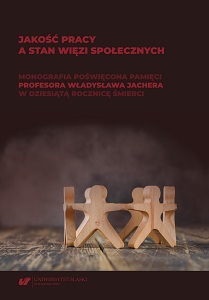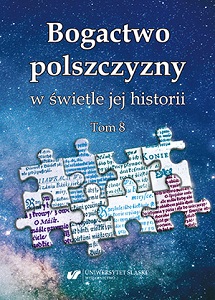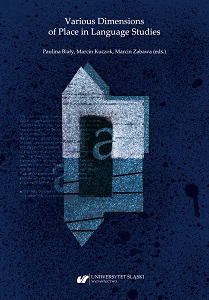Wychować człowieka prawdomównego. Koncepcje, badania naukowe, wdrożenia
Author(s): Alicja Żywczok / Language(s): Polish
Keywords: truthfulness; truth; educational process; moral virtue; character trait; moral value; epistemic value
Common among contemporary Europeans is the belief that “everyone has a right for his or her own truth” or to express their, often very subjective, version of the truth. The classic idea of truth is not particularly popular while various kinds of untruth are treated exceptionally leniently. Copywriters avail themselves of numerous means of persuasion and gain consumers by means of truth manipulation: the truth is shown as untruth or it is concealed or distorted. Not only does their free use of manipulation go unpunished, on the contrary, it is counted among their professional successes. The same applies to the sphere of politics where the problem of separating the truth from the objective reality using sophisticated manipulation seems most acute.
In today’s social life, which abounds in examples of shady business, people are increasingly more often offered vague explanations or establish complicated relationships in which it is not uncommon to come across a garbled version of the truth. The escalation of lie over the last decade among various social circles, from the family and the school to the entire country to the continent or even the whole world, causes in a certain group of people a definite dislike towards untruth resulting from cunningness, egotism or particularism. Such people continue to try and attain the truth and manage to discover it with satisfaction. The desire for veracity is all the more justified in such a situation. Such an attitude, coupled with other personal traits, paves the way to leading a good life.
The reasons I chose this particular subject matter for my research are both the threats to the truth listed above as well as my rejection of untruth in the public life, the desire to protect children and the youth against liberal decrease of sensitivity to the lie, insufficient love of the truth and underappreciation of veracity. In the world of today, despite the fact that pretended values and phenomena are being treated with more and more appreciation, mere appearances or mystification are being openly adored, the veracity standard that results from the desire for authenticity and honesty remains active in the human self-consciousness.
In my research, whose results eventually materialized in the form of this monograph, I followed the desire to preserve for posterity the world in which one seeks the truth in order to feel the cognitive satisfaction, the world in which one undertakes wise and effective actions, intending to avoid the tragic outcome of defeat caused by being led astray in his or her pursuit of knowledge or being exposed to collective illusion; something goes wrong, appearances, falsehood and the stereotype win the day.
It is worthwhile at this point to explain to the readers why this monograph was written at all. My purpose was not to review or sort out all the research projects (theories, concepts or views) in the subject matter at hand but rather to focus on the upbringing effects of the research material and how it raises the level of social awareness, to thoroughly discuss the phenomenon of the truth and veracity and to work out my own pedagogical standpoint. As far as I am concerned, each generation should ponder the necessity of respecting such a value as truth, enhancing it with new individual components, typical of a given historical or civilization period.
The main research problem is: In what way in the process of upbringing should one shape veracity in the youth?
The aim of my research was to learn what the youth think about the truth and veracity, how they understand the truth, what their relation to such a value as truth is, what kinds of veracity and non-veracity they are familiar with, and what they know about: communication situations conducive and not conducive to telling the truth, the circumstances requiring unconditionally that the truth be told, the feelings accompanying the lie and revealing of the truth, other features of character of a truthful individual, methods of upbringing toward veracity within the family, school and the peer circle, participation of the parents, teachers, classmates, friends in the process of shaping the foundations of veracity; authorities of veracity, valuation of the behavior of truthful and mendacious people, the necessary deviation from the principle of veracity, the reasons and effects of non-veracity; the difficulties in adhering to the norm of veracity in the contemporary world, the significance that is ascribed to veracity in the sphere of individual development and social functioning. It seemed important to seek the answer not only to the main research question but also to many detailed problems, especially: what values opposite to the truth and veracity are the young people above the age of 12 exposed today and what variants of non-veracity do they most often interiorize? By means of what principles, methods, forms or message do the parents and the teachers bring up truthful people? Does mutual veracity improve communication (upbringing dialogue) between the teacher and the student?
Apart from the cognitive purposes, in my opinion, there were also other important aims in my research, including: utilitarian aims (connected with the raising of the level of awareness concerning the cognitive and moral function values in the collective life) and upbringing aims (the shaping of moral habits, such as telling the truth; promoting the principle of veracity in the upbringing relations within the framework of, e.g. axiological education). Promoting such issues may prove to be of inspirational value for the representatives of many research circles including philosophers, sociologists, anthropologists, psychologists, teachers interested in epistemology, theoretical and applied ethics or the theory of moral upbringing and praxeology.
The 2014—2015 study group consisted of high school students (2nd and 3rd graders) from the following Silesian cities: Katowice, Gliwice, Bytom and Tarnowskie Góry (320 subjects aged 17—18).
In the first chapter of the monograph I specified the term of veracity and identified the constitutive properties making up the nature of this psychic disposition. Simultaneously I referred to the classic aspects of axiology (kind of truth and veracity) and the theory of cognition (the way the truth and veracity exist, epistemological and ontological concepts). Placing the problem within the research scope of pedagogics (and its numerous sub-disciplines) and related disciplines (especially anthropology, psychology, philosophy, sociology, history) made it possible to focus the analysis on the problem of science studies and the modern professiology — the shaping of veracity in science practitioners and researchers. I offered the thesis that both the individual research development and the progress of science understood as a cultural quality occur by means of such a personality trait of a researcher as veracity.
In the second chapter I justified the individual and social significance of veracity indicating that it constitutes a moral norm used in building trust, and allowing the society to survive and integrate. In view of the fact that the attitude towards the truth is also an important gauge of humanity, I explained the relationship between veracity and other ideal values such as: love, respect, courage, justice, fidelity, responsibility, peace, freedom, honesty, beauty, and the related character traits. I argued the views of the representatives of the pragmatic concept of the truth, without omitting to discus the numerous functions of the truth and veracity. The analysis and interpretation of the results of the studies made it possible to present extensive argumentation of the examined youth supporting veracity and opposing the lie. I laid emphasis on the significance of veracity in strengthening the stability of the relationship between classmates, friends, spouses and for the building of the familial cohesiveness.
The third chapter invites the reader to analyze the contemporary methods for discredication of the truth and for questioning the model of veracity. Consumerism and utilitarianism have been shown as phenomena jeopardizing the moral culture of “post-modern” societies responsible for the fate of veracity — will it survive or will it ultimately be neglected. I identified, on the basis of various criteria, many variants of non-veracity, such as: presupposition, allusion, implicature and insinuation. I did not ignore here the analysis of the necessary deviations from the principle of veracity. I assumed a negative attitude towards the students’ strategy of avoiding telling the truth to the teacher, putting it down first of all to the lack of mutual trust. Among common distortions of veracity and drawbacks of collective life, in my opinion, are also slander, libel, defamation, gossip, rumor, machiavelism, cherishing prejudice and following stereotypes, characterized in detail in the chapter. Among controversial instances of truth denial are, as far as I am concerned, utopism and cultivation of myths and illusory conceptions (illusions). I indicated the importance of shaping in the young generation the proper beliefs strengthening the desire to achieve the truth and helping to reveal illusions that often make one less active in life.
In the fourth chapter I did not limit myself to describing the causes for non-veracity but made an attempt at fathoming the reasons for veracity. With this in mind I discussed the extrinsic (e.g. social, cultural, political, educational, situational, religious) and endogenous (e.g. habits) determinants of veracity. In order to present a wide array of etiological concepts, in which the problem of lie is addressed not perfunctorily or marginally, but in a reliable way, both psychologically and pedagogically, I used the upbringing propositions of several renowned pedagogists (Ellen Key, Alexander S. Neilla, Janusz Korczak) of European descent and Rabindranath Tagory, a promoter of an Asiatic concept of upbringing. I hope that associating the cultural output with modernity, i.e. the outcome of my own studies, which may be metaphorically termed “the voice of the contemporary Polish youth”, will produce the expected effect in the form of proper attitude toward the lie and a response consisting in adopting wise solutions to complex pedagogical problems.
In the fifth chapter I discuss the theory of upbringing, applied ethics and pedagogical praxeology, all related to the understanding of veracity as a component of the ideal of upbringing, the principle of upbringing, the aim of the dialogue between the educator and his or her students, teacher’s or pedagogist’s tasks, responsibility towards the truth, obligations towards oneself and the others. The sub-chapter on identifying truth and veracity in upbringing relations and situations and the effective prevention of the problem of mendacity constitutes a certain kind of pedagogical prompt. I showed the internal struggle of a human being, related to opting for the truth and rejecting its opposites; I also stressed the regulatory function of the emotional sphere in the process of making correct moral decisions. Also shown in this chapter is the significance of shaping the most neglected sphere of the human development, the volitional sphere (including a number of related features, such as: perseverance, consequence, endurance, psychic resistance, regularity, conscientiousness, diligence, reliability, honesty) in the process of maintaining the attitude of veracity and counteracting the lie. In the last sub-chapter I supplied a number of hints for the parents and teachers on how (not only by means of sanctions) one can bring up a truthful person; what upbringing methods, forms, means and contents may prove helpful in achieving this aim.
The annex consists of excerpts taken out from essays produced by the examined high school students on the topic of: “The Significance of Truth in My Life — Childhood, Youth, Adulthood”. This final part of the monograph complements the presented theoretical concepts and interpretations of the research results; from the practical point of view, it will also prove invaluable in inspiring parents, teachers, educators, pedagogists, care-providers, curators, animators, moderators, family assistants or therapeutists to undertake selfreflection and to discuss and use the presented concepts in work with young people (e.g. in axiological education, including exercising personal maturity, ethical efficiency and interpersonal skills) during the educational, ethics, religion or other lessons using activating methods or during after-school classes.
The complexity of modern social life and the stress that the economic factors exert on humanistic standards causes one to rightfully worry about the fate of societies and the individual; they may be led astray by political, philosophical, psychological, sociological and other theories, which strain the axiological sensitivity of the human being, leading it to the cultural and moral wilderness. A teacher working with the young generation should make sure that their students do not compensate their creative intelligence with cunningness or being smart; he or she should also prevent them from replacing an awkward or unesthetic truth with a convenient lie. I thereby take a great pleasure in dedicating this monograph to all the professionals bringing up children according to the best tradition of veracity.
More...
